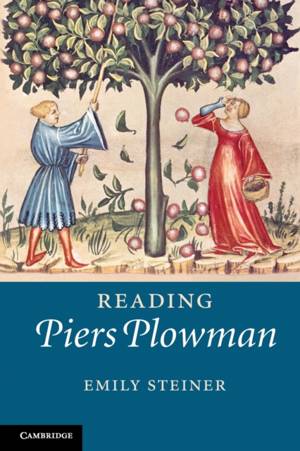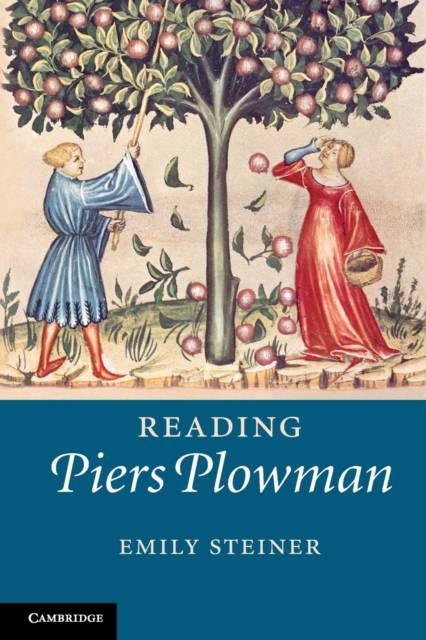
- Afhalen na 1 uur in een winkel met voorraad
- Gratis thuislevering in België vanaf € 30
- Ruim aanbod met 7 miljoen producten
- Afhalen na 1 uur in een winkel met voorraad
- Gratis thuislevering in België vanaf € 30
- Ruim aanbod met 7 miljoen producten
Zoeken
€ 50,45
+ 100 punten
Uitvoering
Omschrijving
Reading "Piers Plowman" is an indispensable scholarly guide to a magnificent - and notoriously difficult - medieval poem. With Piers Plowman, the fourteenth-century poet William Langland proved that English verse could be at once spiritually electrifying and intellectually rigorous, capable of imagining society in its totality while at the same time exploring heady ideas about language, theology and culture. In her study of Piers Plowman, Emily Steiner explores how Langland's ambitious poetics emerged in dialogue with contemporary ideas; for example, about political counsel and gender, the ethics of poverty, secular and pagan learning, lordship and servitude, and the long history of Christianity. Lucid and comprehensive, Steiner's study teaches us to stay alert to the poem's stunning effects while still making sense of its literary and historical contexts.
Specificaties
Betrokkenen
- Auteur(s):
- Uitgeverij:
Inhoud
- Aantal bladzijden:
- 273
- Taal:
- Engels
- Reeks:
Eigenschappen
- Productcode (EAN):
- 9780521687836
- Verschijningsdatum:
- 28/06/2013
- Uitvoering:
- Paperback
- Formaat:
- Trade paperback (VS)
- Afmetingen:
- 152 mm x 226 mm
- Gewicht:
- 476 g

Alleen bij Standaard Boekhandel
+ 100 punten op je klantenkaart van Standaard Boekhandel
Beoordelingen
We publiceren alleen reviews die voldoen aan de voorwaarden voor reviews. Bekijk onze voorwaarden voor reviews.











